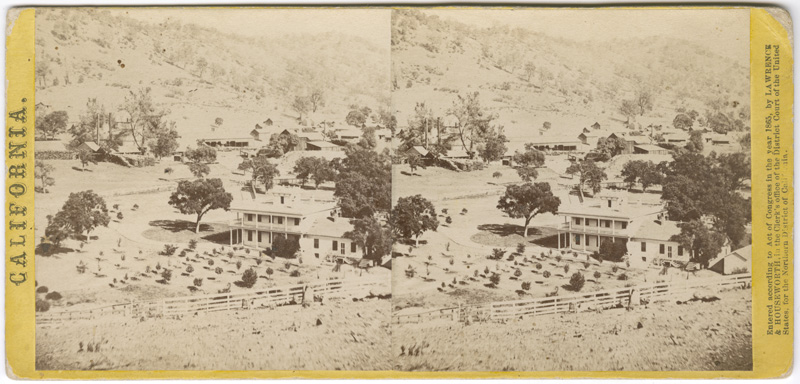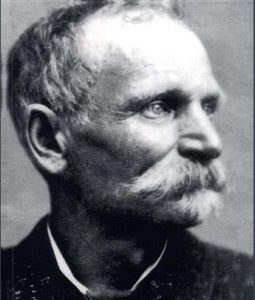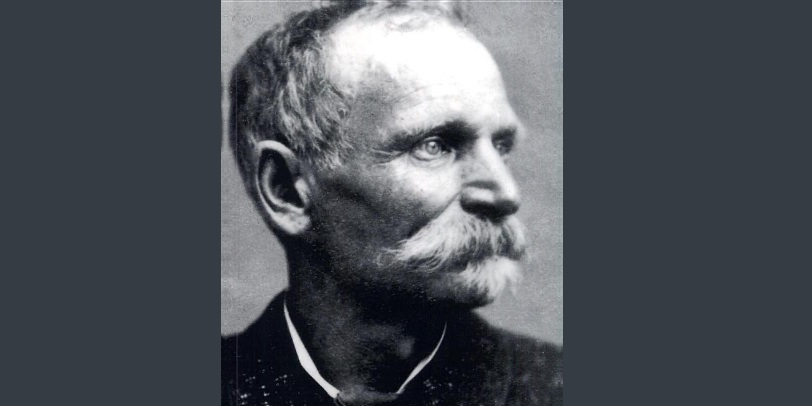
Near Copperopolis in Calaveras County, Wells Fargo’s poetry-writing nemesis “Black Bart” – English-born Charles Boles– steps out from behind a rock with a shotgun to commit his 28th stagecoach robbery. Besides leaving poems at two of his hold-ups, Boles supposedly never fires a shot during his career as a stagecoach bandit, which began in 1875 near where it ended eight years later. But on his last robbery, Boles is fired upon by one of the witnesses. Wounded in the hand, Boles flees into the woods with the stage’s gold but, in his haste, leaves behind a pair of eyeglasses and a handkerchief with the laundry mark F.X.O.7. Wells Fargo detectives search 90 laundries before they find the one used by a “Mr. Bolton” of Room 40 in a modest boardinghouse at 37 Second Street in San Francisco.
“Here I lay me down to sleep to wait the coming morrow.
“Perhaps success, perhaps defeat and everlasting sorrow.
“Let come what will I’ll try it on, my condition can’t be worse
“And if there’s money in that box ‘t’is munny in my purse.”— Black Bart, ‘PO8’ (July 25, 1878)

Boles, 54, is charged only with the final robbery. He’s convicted and sent to San Quentin for six years but released in four years for good behavior.
After telling reporters upon his release he won’t rob any more stagecoaches, Boles is asked if he’ll ever write more poetry: “Didn’t you hear me say that I am through with crime?” he replies.
In deteriorating health, he leaves the Bay Area and is never seen again after a final sighting at the Palace Hotel in Visalia, February 28, 1888.

